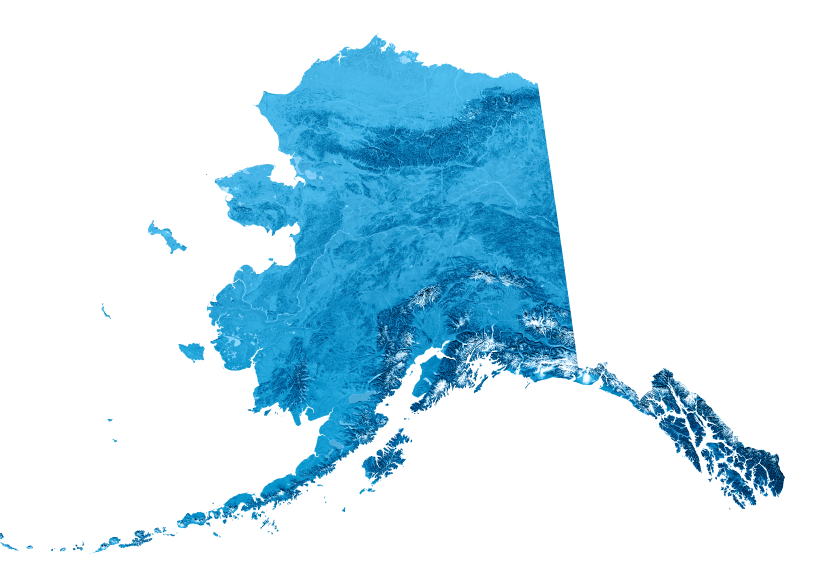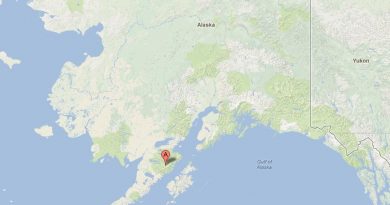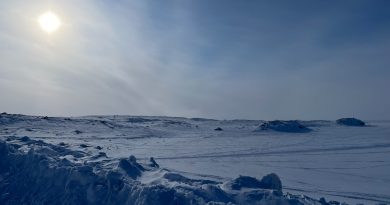Drilling in Arctic Alaska oil reserve approved

The U.S. Bureau of Land Management announced on Thursday it has approved a drilling permit that could set the stage for the first oil production on federal land in the nation’s largest reserve.
The federal agency also said it has granted right-of-way access for the ConocoPhillips’ Greater Moose’s Tooth 1 project in the Indiana-sized National Petroleum Reserve-Alaska.
“It’s good news. We’re pleased they issued the permit and the right-of-way and now we’re seeking a funding decision,” said Natalie Lowman, communications director for ConocoPhillips Alaska.
Plunging oil prices
The oil giant has not yet approved development at the site, and the plunge in oil prices that has slashed petroleum revenue raises questions about the timing of a decision. ConocoPhillips has said production could peak at 30,000 barrels of oil daily while up to 700 jobs may be created during winter construction.
It’s not known when the boards of ConocoPhillips and Anadarko Petroleum Corp., a 22 percent owner, will decide if they will approve funding for development, said Lowman. That cost has been pegged at $900 million.
Created as a naval petroleum reserve more than 90 years ago, the lack of oil production from NPR-A has long frustrated Alaska politicians.
‘Good news’ says politician
Sen. Lisa Murkowski, R-Alaska, and chair of the Senate Energy Committee, called the approval “good news” but said it underscores the “tortured path Alaskans have been forced to navigate to develop on federal lands in our state.”
On the plus side, she said, much of the oil will come from the subsurface estate of Arctic Slope Regional Corp., the Native regional corporation for the North Slope, and revenues will be shared with other Native corporations under a provision in the federal law that created the corporations.
ConocoPhillips first proposed the development 13 years ago, as a satellite field to its larger Alpine development. The effort was put on hold for years as the agency developed activity plans for the reserve, Murkowski said.
ConocoPhillips has proposed building an 11.8-acre drilling pad with elevated above-ground pipelines and electric power lines.
Environmental impacts
BLM characterized its approach in the reserve as balanced, and said it has taken steps to reduce environmental impacts, including establishing a fund to pay for a regional mitigation strategy in the reserve.
ConocoPhillips has paid $1 million into the fund for the strategy’s development, said Lowman. Another $7 million would be paid into the fund after construction of the site to help pay for mitigation efforts that benefit local residents and subsistence users, she said.
Bud Cribley, BLM’s Alaska director, said the agency will continue working with ConocoPhillips on a “responsible path forward in the development of oil and gas resources” in the reserve.
Lindsey Hajduk, with the Conservation Lands Foundation, noted that the agency had previously approved an 8-mile road through subsistence hunting and fishing grounds.
“It is up to the public to hold BLM to its commitment to protect the Western Arctic’s special areas from the splintering impacts of oil and gas development and ensure that these areas remain safe havens for wildlife and subsistence hunting,” she said.
Related stories from around the North:
Canada: Energy challenges in Canada’s North, Eye on the Arctic
Finland: Experts question Finland’s energy decisions, data, Yle News
Norway: Japan wants wind power from Arctic Norway, Barents Observer
Russia: No alternative to Arctic oil says Russia environment minister, Barents Observer
Sweden: Will Sweden be able to produce enough energy in the future?, Radio Sweden
United States: What is the Alaska LNG project? (Part 1), Alaska Public Radio Network



